Financial Planning and Budgeting
Understanding Financial Disclosure in Divorce Proceedings
Yearning for insights into the complexities of financial disclosure in divorce? Delve into this summary to unravel the crucial role it plays.

In the complex process of divorce proceedings, revealing one’s financial situation is like unraveling an onion, with each layer peeled, a fresh facet of an individual’s financial reality is exposed.
Imagine a divorcing couple where one party claims they have no assets, yet a mysterious bank deposit surfaces. The importance of financial transparency cannot be overstated in such scenarios.
Understanding the nuances of financial disclosure is not just a legal requirement but a pivotal step towards ensuring an equitable resolution for both parties involved.
Key Takeaways
- Complete financial disclosure ensures fairness and transparency in asset division.
- Knowing marital vs. separate property aids in equitable asset distribution.
- Concealing assets can lead to severe consequences and unfair settlements.
- Legal assistance enhances accuracy, compliance, and fairness in financial disclosures.
Importance of Financial Disclosure
Ensuring complete financial disclosure is paramount in divorce proceedings as it lays the foundation for transparency and fairness in the division of assets. In the intricate web of divorce, the importance of full financial disclosure can't be overstated. It's the bedrock upon which the equitable distribution of marital property, assessment of liabilities, and determination of spousal support rest.
Without transparent financial disclosures, the scales of justice tip precariously, potentially leaving one party at a significant disadvantage. Hidden assets or concealed income sources can skew negotiations, leading to unjust outcomes. By shining a light on all financial aspects, individuals empower themselves to navigate the divorce process with clarity and control.
Courts rely heavily on these disclosures to make informed decisions, ensuring that each party's financial standing is accurately represented. In divorce, where emotions run high and tensions can cloud judgment, a commitment to complete financial disclosure paves the way for a more equitable resolution.
Required Documents in Divorce
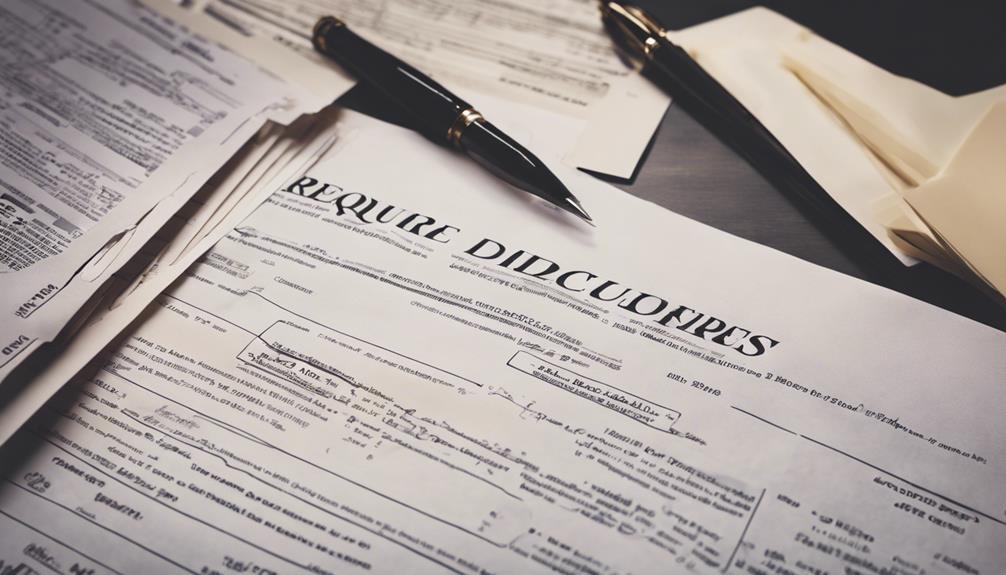
When navigating the complexities of divorce proceedings, gathering and exchanging required documents is a crucial step towards establishing transparency and fairness.
Financial disclosures are essential for a smooth divorce process, ensuring both parties have a clear understanding of the assets and liabilities at stake. Providing accurate financial information regarding bank accounts, division of marital property, and other crucial details is vital in a community property state.
Failure to provide these documents can impede the process, leading to delays and potential legal consequences. Required documents such as property deeds, retirement account statements, insurance policies, bank statements, and tax returns must be shared within specific timelines to maintain the integrity of the proceedings.
Waivers of initial financial disclosures must be documented in writing to be considered valid, emphasizing the importance of thorough disclosure in divorce cases, especially when considering spousal support.
Incomplete or misleading information can significantly impact the outcome of the divorce settlement, making it crucial to approach financial disclosures with diligence and honesty.
Differentiating Property Types
Understanding the distinction between marital property and separate property is fundamental for achieving a fair distribution of assets in divorce proceedings. Proper identification of property types is essential to ensure an equitable division of assets. Marital property typically includes assets acquired during the marriage, while separate property consists of assets owned before the marriage or received through gifts or inheritance. In states like Texas that follow community property laws, assets are generally split equally between spouses. By differentiating between these property types, couples can navigate the financial disclosure process more effectively and work towards a resolution that is fair and just.
| Marital Property | Separate Property |
|---|---|
| Assets acquired during marriage | Assets owned before marriage or received by gift/inheritance |
| Subject to division in divorce | Typically retained by the original owner |
| Includes joint investments | Excludes individual pre-marriage assets |
Concealing Assets Risks

Experiencing the risks associated with concealing assets in divorce can have significant consequences on the fairness and integrity of the property division process. When individuals attempt to hide assets during divorce proceedings, they face severe repercussions that can alter the outcome of the settlement and lead to legal complications.
Here are five key points to consider regarding the risks of concealing assets:
- Financial Sanctions: Concealing assets violates Disclosure Law and can result in substantial financial penalties.
- Set Aside Agreements: Failure to disclose all financial information may lead to agreements being set aside, jeopardizing the validity of the settlement.
- Impact on Property Division: Hiding assets skews the property division process, affecting the equitable distribution of resources.
- Forensic Accountants: Utilizing forensic accountants can help uncover hidden assets, ensuring transparency in financial disclosures.
- Alimony and Support: Concealing assets not only influences property division but can also impact alimony rates and financial support arrangements, affecting post-divorce financial stability.
Legal Assistance Benefits
How can legal assistance enhance the transparency and accuracy of financial disclosures during divorce proceedings?
When navigating the complexities of family law, engaging the services of a reputable Law Firm specializing in Disclosure Law can be invaluable. These professionals possess the expertise to guide you through the intricate process of financial disclosure, ensuring that all relevant information, such as retirement accounts, pension plans, and investment accounts, is accurately documented.
By working with skilled attorneys, you can rest assured that your financial disclosures meet the legal requirements set forth by Texas law.
Legal representation not only facilitates compliance with disclosure regulations but also plays a crucial role in advocating for fair property division and child custody arrangements. With a knowledgeable attorney by your side, you can mitigate the risk of incomplete or dishonest financial disclosures, safeguarding your interests and ensuring a smoother divorce process.
Consulting with a Dallas attorney can provide you with the assurance that your financial disclosures are thorough, transparent, and in accordance with the law.
Frequently Asked Questions
Why Is Financial Disclosure Important in Divorce?
We believe financial disclosure in divorce is vital as it promotes transparency, aiding in fair asset division and support determination. Incomplete or dishonest disclosures can lead to severe consequences and impact the final settlement.
What Is the Preliminary Financial Disclosure for Divorce?
We exchange crucial financial details like property deeds, bank statements, and more within 30 days of responding to a divorce petition. This information covers the last two years or since marriage. Waivers must be written.
How Do Financials Work in a Divorce?
Financials in divorce work by disclosing assets, debts, income, and expenses. It's crucial for fair settlements. Complete and honest financial disclosures are key. Failure to disclose can lead to legal issues. Transparency is vital.
How Do You Avoid Financial Disclosure?
We can't stress enough the importance of providing complete financial information in divorce. Avoiding disclosure can lead to legal trouble, financial penalties, and damage trust. It's crucial to be honest and transparent throughout the process.
Conclusion
In conclusion, financial disclosure in divorce proceedings is paramount for ensuring a fair division of assets and liabilities. Remember, honesty is the best policy when it comes to disclosing your financial information.
As the saying goes, 'honesty is the best policy.' By being transparent and thorough in your disclosure, you can help facilitate a smoother and more equitable divorce process for both parties involved.
Trust the process and trust in full disclosure for a better outcome.
Understanding the financial implications of divorce can be daunting. Christopher, our Financial Strategist, makes it accessible and manageable. He offers strategic insights into financial planning, asset division, and budgeting during and after divorce. Christopher’s guidance is invaluable for anyone looking to navigate the financial challenges of divorce with confidence and clarity.
Financial Planning and Budgeting
Navigating Retirement Planning After Divorce
Explore strategies for retirement planning after divorce to secure your financial future and rebuild your nest egg effectively.

Did you know that divorce rates have doubled for Americans over the age of 50 since the 1990s? These grey divorces can have far-reaching financial implications, especially regarding retirement planning. Rebuilding a nest egg and securing a stable financial future becomes paramount for individuals starting over after a divorce.
Creating a new retirement plan tailored to post-divorce living is essential. It involves assessing expenses, maximizing contributions, understanding the division of assets, and seeking professional guidance. By navigating these challenges strategically, individuals can regain stability and work towards a secure retirement.
Key Takeaways:
- Divorce rates among Americans over 50 have doubled since the 1990s.
- Rebuilding a nest egg and securing a stable financial future after divorce requires proactive retirement planning.
- Assessing post-divorce expenses is crucial for setting realistic retirement goals.
- Maximizing retirement contributions through 401(k)s and IRAs accelerates rebuilding retirement savings.
- Understanding the division of assets, such as retirement accounts and inheritances, is vital for an equitable outcome.
Strategies for Building Retirement Savings
When it comes to building retirement savings, there are several effective strategies to consider. By taking advantage of key investment vehicles such as a 401(k) and an IRA, individuals can maximize their savings potential and work towards a secure financial future.
Contributing to a 401(k)
Many employers offer a 401(k), a popular retirement savings option. It allows employees to contribute a portion of their pre-tax income to their retirement savings. One significant advantage of a 401(k) is that employers often provide matching contributions, which can be viewed as free money toward retirement.
Individuals can significantly accelerate their retirement savings by participating in a 401(k) plan and taking advantage of employer matching. The contributions made to a 401(k) are tax-deferred, meaning they are not taxed until the funds are withdrawn during retirement.
Opening an IRA
In addition to a 401(k), individuals can further enhance their retirement savings by opening an Individual Retirement Account (IRA). An IRA allows individuals to save for retirement on their own, especially for those who do not have access to an employer-sponsored 401(k) plan or wish to save more than the contribution limits of a 401(k).
Contributions to an IRA are made with after-tax dollars, meaning they are not tax-deductible. However, individuals can benefit from tax-deferred growth, as the earnings on the investments within the IRA grow tax-free until withdrawals are made during retirement.
Catch-Up Contributions
As individuals approach retirement age, taking advantage of catch-up contributions is essential. Catch-up contributions allow individuals aged 50 or older to contribute additional funds to their retirement accounts, such as a 401(k) or an IRA, beyond the regular contribution limits.
For a 401(k), the catch-up contribution limit for individuals aged 50 or older in 2021 is $6,500 in addition to the regular contribution limit of $19,500. Similarly, for an IRA, the catch-up contribution limit for individuals aged 50 or older in 2021 is $1,000 in addition to the regular contribution limit of $6,000.
Consulting a Financial Advisor
Navigating the nuances of retirement savings and developing a comprehensive plan can be overwhelming. That’s why it is beneficial to seek the guidance of a financial advisor with expertise in retirement planning.
A financial advisor with a Certified Financial Planner (CFP) designation can provide personalized advice tailored to individual circumstances. They can help identify the most suitable investment options, recommend optimal asset allocations, and assist in setting achievable retirement goals.
Financial advisors can also offer valuable insights on tax-efficient strategies, estate planning considerations, and risk management techniques to ensure a well-rounded retirement plan.
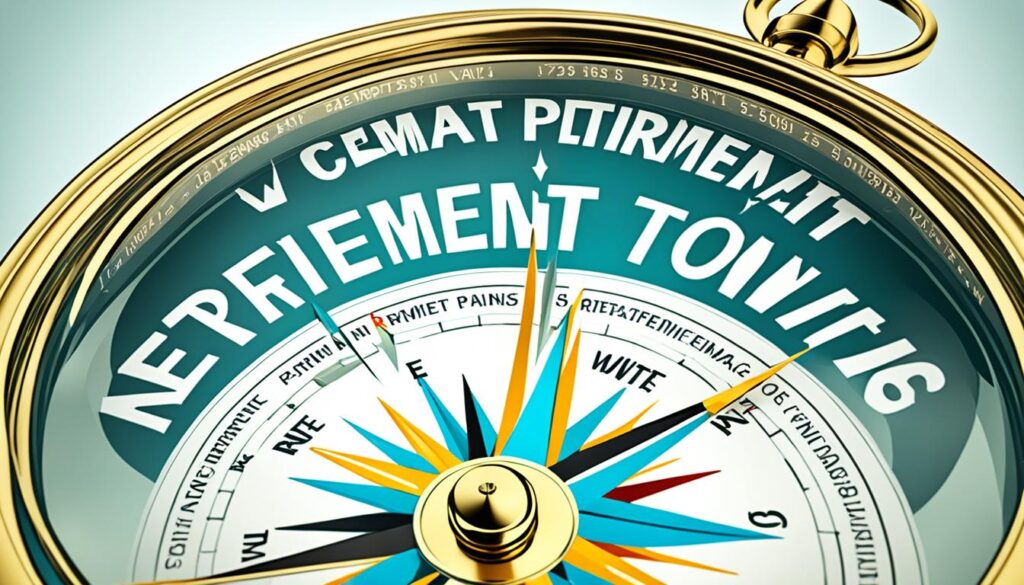
By implementing these strategies and seeking professional guidance, individuals can build their retirement savings effectively and take the necessary steps towards a financially secure future.
Division of Retirement Assets in Divorce
Divorce can significantly impact retirement assets. The division of these assets can vary depending on the type of state in which the couple resides. In community property states, the general principle is to divide assets acquired during the marriage equally between both parties involved. On the other hand, common law states employ an equitable division approach, where the courts have discretion in determining what is fair.
When it comes to retirement accounts like 401(k)s and IRAs, the division process may require the filing of a qualified domestic relations order (QDRO). A QDRO is a legal document that stipulates how retirement funds should be divided between spouses. It ensures a fair and orderly distribution of these assets while considering the unique circumstances of each case.
Another type of retirement asset that may come into play during divorce proceedings is the defined-benefit pension. These pensions, earned during the marriage, are often considered shared assets and subject to division between former spouses.
While retirement accounts and pensions are typically divided, it’s important to note that specific laws and regulations control Social Security benefits. A divorced spouse may be eligible for ex-spousal benefits, depending on the duration of the marriage, among other factors. Understanding the rules surrounding Social Security benefits can help individuals navigate the financial implications of divorce on their retirement planning.

State Type Guiding Principle Retirement Assets Considered Community Property Equal division of assets acquired during the marriage 401(k), IRA, defined-benefit pensions Common Law Equitable division based on court discretion 401(k), IRA, defined-benefit pensions
Consulting with legal professionals specializing in divorce and retirement planning can provide individuals with the necessary guidance to navigate the division of retirement assets. They can help ensure a fair and equitable distribution, considering the specific laws and regulations in the relevant jurisdiction.
Handling Inheritance in Divorce
Inherited assets in divorce can be a complex and nuanced matter. Various factors determine how inheritance is handled during asset division. In community property states, separate assets such as inherited money or property are generally retained by the recipient spouse. However, the situation becomes more intricate if the inheritance is commingled with shared funds, as it may be considered marital property subject to division.
Divorce courts strive to achieve equitable outcomes, considering each case’s specific circumstances. Judges have discretion in decision-making and consider a range of relevant factors when dividing assets, including inheritances acquired during the course of the marriage.
To navigate the intricacies of handling inherited assets in divorce, it is advisable to seek guidance from an estate specialist. These professionals possess the expertise to provide valuable advice on the division of inheritances acquired during marriage, ensuring a fair and equitable outcome for both parties.
Understanding the complexities of inheritance and divorce is crucial for individuals going through the separation process. Consulting an estate specialist can provide the necessary clarity and guidance to make informed decisions regarding inherited assets, ultimately safeguarding one’s financial future.

The Role of an Estate Specialist
Consulting an estate specialist can provide invaluable guidance on dividing inherited assets acquired during the course of a marriage. These professionals possess a deep understanding of inheritance laws and can help ensure a fair division of assets during divorce proceedings.
Updating Financial Plans Post-Divorce
After finalizing a divorce, updating your financial plans to reflect your new situation is essential. This includes revisiting your overall financial goals and ensuring that your plan is still on track.
One important aspect of updating your financial plans after divorce is reviewing and updating them. Evaluate your current income, expenses, and assets to make necessary adjustments. Assess your retirement savings and determine if any changes need to be made to account for the divorce settlement. It is also crucial to consider any ongoing financial obligations such as alimony or child support.
Another key consideration is updating your will. Divorce can have significant implications for your estate planning. Review your will and make any necessary updates to reflect your changed circumstances. Decide how you want your assets to be distributed and consider appointing new beneficiaries or executors.
Additionally, it is essential to update the beneficiaries on your financial accounts. Many people overlook this crucial step, but it is important to ensure that your assets go to the intended recipients. Review the beneficiaries on your bank accounts, retirement accounts, life insurance policies, and any other financial assets. Update the beneficiaries to align with your current wishes, taking into account the divorce settlement and any changes in your family dynamics.
“Updating your financial plans after divorce is crucial to ensure that your hard-earned money goes where you want it to go. Don’t forget to review your financial plan, update your will, and update the beneficiaries on your financial accounts.”
Working with a trusted financial advisor can be beneficial during this process. A financial advisor can help you navigate these changes and provide guidance on adjusting your financial plan, updating your will, and ensuring that the beneficiaries on your accounts are up to date. They can offer valuable insights and help you make informed decisions to secure your financial future post-divorce.
| Steps to Update Financial Plans Post-Divorce |
|---|
| Review and update your financial plan |
| Update your will to reflect changed circumstances |
| Review and update the beneficiaries on your financial accounts |
| Consider working with a financial advisor |

By taking the necessary steps to update your financial plans after divorce, you can ensure that your finances align with your new circumstances and goals. Regularly reviewing and adjusting your financial plan, will, and account beneficiaries is essential to maintain control over your financial future and protect the assets you’ve worked hard to build.
Seeking Professional Help
When navigating retirement planning after divorce, it is important to seek professional help to ensure a secure financial future. A financial advisor, particularly one with a Certified Financial Planner (CFP) designation, can provide expert guidance and advice on creating a comprehensive retirement plan tailored to individual needs and goals. They have the knowledge and experience to analyze the current financial situation, assess risks, and recommend suitable investment strategies to help rebuild and grow retirement funds.
An estate specialist is another valuable professional to consider. They can offer advice on dividing inherited assets acquired during the marriage, ensuring a fair and equitable distribution. Estate specialists have a deep understanding of the complex legal and financial aspects involved in estate planning and can help individuals make informed decisions regarding inheritances.
When selecting professionals, it is important to have a good rapport and trust in their expertise. Take the time to interview and evaluate potential financial advisors and estate specialists to find the right fit. The collaboration between individuals and these professionals is crucial in navigating the complexities of retirement planning after divorce and achieving long-term financial security.
“A financial advisor and an estate specialist are valuable resources when navigating retirement planning after divorce. Their expertise and guidance can help individuals create a comprehensive retirement plan and navigate the complexities of dividing assets.”
Certified Financial Planners: Going Beyond Financial Advice
Certified Financial Planners (CFPs) go above and beyond traditional financial advisors, as they have met rigorous education, experience, and ethical requirements. They have a comprehensive understanding of various financial aspects, including retirement planning, tax strategies, investments, and insurance. CFPs can provide personalized advice that takes into account both the short-term and long-term financial goals of individuals.
Working with a CFP can provide peace of mind, knowing that the retirement plan is built on a strong foundation and aligned with the individual’s unique circumstances. They can assist in developing a detailed roadmap that maximizes retirement savings and minimizes unnecessary financial risks.
Dividing Inherited Assets: Guidance from an Estate Specialist
Inherited assets can become a contentious issue during divorce proceedings. An estate specialist can provide valuable guidance on how to navigate this complex scenario. They have a deep understanding of inheritance laws and can help individuals determine whether inherited assets should be considered separate or marital property.
By seeking advice from an estate specialist, individuals can gain clarity on the best course of action for dividing inherited assets acquired during the marriage. This guidance ensures that the division is fair and aligned with legal requirements, preventing potential disputes and ensuring a smoother transition to the next stage of financial independence.
Key Considerations When Seeking Professional Help
| Consideration | Financial Advisor | Certified Financial Planner (CFP) | Estate Specialist |
|---|---|---|---|
| Expertise in retirement planning | ✔ | ✔ | |
| Comprehensive financial advice | ✔ | ✔ | |
| Assessment of individual financial goals | ✔ | ✔ | |
| Estate planning and inheritance expertise | ✔ | ||
| Customized retirement plan | ✔ | ||
| Rapport and trust | ✔ | ✔ | ✔ |
Seeking professional help from a financial advisor, CFP, and estate specialist is crucial when navigating retirement planning after divorce. Their expertise can provide guidance on creating a comprehensive retirement plan, dividing inherited assets, and maximizing financial security.

Secure Your Financial Future
Divorce can have a significant impact on financial security, but it is possible to rebuild wealth and secure a comfortable retirement. By creating a new retirement plan, taking advantage of savings options like 401(k)s and IRAs, and seeking professional guidance, individuals can navigate the financial challenges of divorce and work towards a financially stable future. With careful planning and proactive steps, it is possible to overcome the setbacks of divorce and achieve financial independence in retirement.
Creating a New Retirement Plan
After divorce, it’s important to reassess and create a new retirement plan. This involves evaluating your financial goals, estimating retirement expenses, and determining how much you need to save to maintain your desired lifestyle. Consider factors such as downsizing, travel plans, and any changes in income or expenses. By creating a comprehensive retirement plan tailored to your new circumstances, you can regain control of your financial future.
Utilizing Savings Options
To rebuild wealth and secure your retirement, take advantage of savings options like 401(k)s and IRAs. Contribute as much as possible to your employer-sponsored 401(k), especially if there is a matching contribution. This allows you to maximize your retirement savings and benefit from free money towards your future. Additionally, consider opening an IRA if you don’t have access to a 401(k) or want to save more. IRAs provide additional flexibility and potential tax advantages.

Seeking Professional Guidance
Navigating the financial complexities of divorce and rebuilding wealth can be challenging, which is why seeking professional guidance is crucial. Work with a financial advisor who specializes in retirement planning to develop a personalized strategy that aligns with your goals. A certified financial planner (CFP) can provide expert advice and help you make informed decisions. Additionally, consult with an estate specialist to ensure proper division of assets and navigate any inheritances received during the marriage.
“Seeking professional guidance can provide you with the expertise and knowledge necessary to secure your financial future after divorce.”
Building a Strong Financial Foundation
Rebuilding wealth and securing your retirement requires a strong financial foundation. Be proactive in managing your finances, track your spending, and focus on saving and investing. Implement sound financial habits and consider working with professionals to develop a solid financial plan. Together, these steps will help you regain stability and work towards a comfortable and secure retirement.
In conclusion, while divorce can have a significant impact on financial security, it is possible to rebuild wealth and secure your retirement. By creating a new retirement plan, utilizing savings options, seeking professional guidance, and focusing on building a strong financial foundation, you can overcome the setbacks of divorce and achieve financial independence in your retirement years. Take proactive steps today and secure your financial future.
Importance of Assessing Expenses
Assessing expenses is a crucial step in retirement planning after divorce. It is essential to determine the desired lifestyle and calculate the associated costs to set realistic goals and make informed investment decisions.
One important consideration is downsizing to a smaller and more affordable home. Downsizing not only reduces housing expenses but also frees up funds for other retirement needs. It can be an effective strategy to optimize retirement expenses and maintain financial stability.
Another factor to consider is travel. Divorce often brings a newfound freedom to explore and experience new adventures. However, increased travel expenses should be taken into account when planning for retirement. By estimating travel costs and incorporating them into the retirement plan, individuals can ensure that they have sufficient funds to support their desired travel lifestyle.
By thoroughly understanding and assessing post-retirement expenses, individuals can develop a comprehensive retirement plan that aligns with their lifestyle goals. This includes preparing for both essential expenses and discretionary spending, such as hobbies and entertainment.
Assessing expenses accurately is crucial for creating a retirement plan that provides financial security and peace of mind. By taking the time to evaluate the necessary costs and make informed decisions, individuals can set realistic goals and make the most of their retirement savings.
Retirement Expenses Worksheet
To help individuals assess their retirement expenses, here is a simple worksheet that outlines common categories:
| Expense Category | Monthly Cost |
|---|---|
| Housing (mortgage/rent, property taxes, maintenance) | |
| Utilities (electricity, water, gas, internet) | |
| Food and Groceries | |
| Transportation (car payments, insurance, fuel) | |
| Healthcare (insurance premiums, medications, medical expenses) | |
| Travel and Leisure | |
| Entertainment (dining out, movies, hobbies) | |
| Personal Care (haircuts, beauty products) | |
| Charitable Contributions | |
| Other (miscellaneous expenses) | |
| Total Monthly Expenses: |
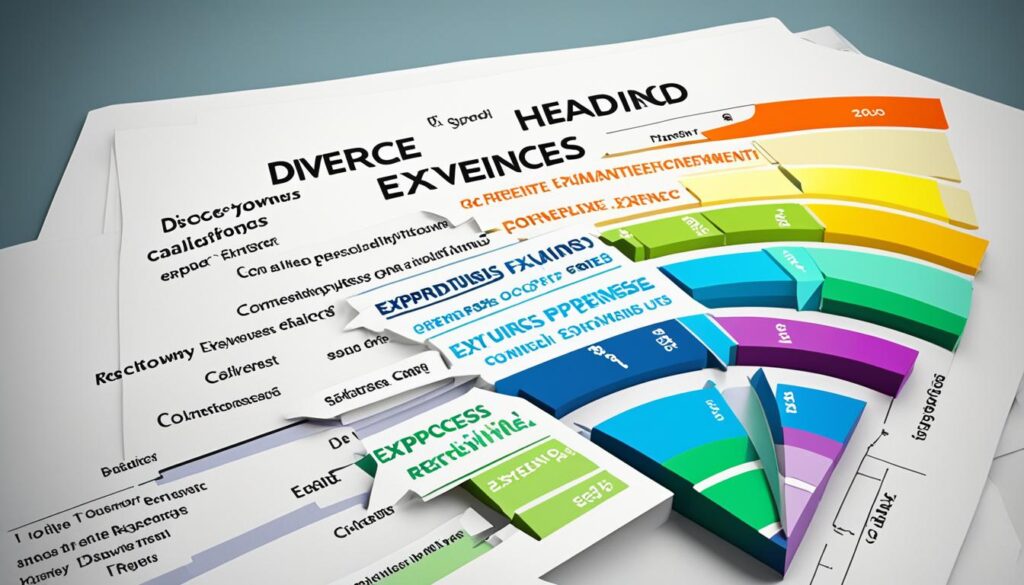
By filling out this worksheet and accurately estimating monthly expenses, individuals can gain a clearer picture of their financial needs in retirement. This information can then be used to develop a comprehensive retirement plan that accounts for all necessary expenses.
Maximizing Retirement Contributions

Maximizing retirement contributions is crucial for building a solid retirement fund. By taking advantage of various retirement savings options, individuals can accelerate their journey towards a financially secure future.
401(k) Contributions
Contributing to a 401(k) is one of the most popular ways to save for retirement. Not only does it provide individuals with the opportunity to reduce their taxable income, but many employers also offer employer matching contributions. These matching contributions are essentially free money that can significantly boost retirement savings. It’s important to contribute as much as possible to maximize the benefits of employer matching.
IRA Contributions
Opening an Individual Retirement Account (IRA) is another effective strategy for saving for retirement. With an IRA, individuals have more control over their investment choices and can contribute beyond the 401(k) limits. Additionally, IRA contributions may be tax-deductible, further enhancing the benefit of saving in this type of account. By leveraging the advantages of both 401(k) and IRA contributions, individuals can optimize their retirement savings potential.
Catch-up Contributions
Catch-up contributions are available for individuals aged 50 or older, allowing them to contribute additional funds to their retirement accounts. This provision exists to help individuals who may have fallen behind in their retirement savings due to various factors, such as career changes or unexpected expenses. These catch-up contributions are tax-deductible, providing individuals with an opportunity to make up for lost time and accelerate their retirement savings.
By maximizing 401(k) contributions, taking advantage of employer matching, opening an IRA, and making catch-up contributions, individuals can accelerate their retirement savings and build a solid foundation for a secure financial future. Consulting with a financial advisor can provide personalized guidance and help individuals make informed decisions to optimize their retirement contributions.
The Role of Qualified Domestic Relations Order (QDRO)
The division of retirement funds in a divorce often requires the filing of a Qualified Domestic Relations Order (QDRO). A QDRO is a legal document that specifies how retirement assets, such as 401(k)s and IRAs, should be divided between spouses. It ensures that the division is done equitably and in compliance with the law.
When a couple decides to divorce, retirement accounts are considered marital property and are subject to division. However, unlike other assets, such as bank accounts or real estate, the division of retirement funds requires a QDRO to transfer the funds from one spouse to another without tax penalties.
The QDRO outlines the details of the division, including the percentage or amount each party will receive. It may specify a direct transfer of funds to the receiving spouse’s retirement account or provide for a cash transfer. The QDRO must be approved by the plan administrator or the court to ensure compliance with the plan’s rules.
The process of obtaining a QDRO can be complex and requires the assistance of legal professionals experienced in family law. They will ensure that the QDRO meets the specific requirements of the retirement plan and complies with the applicable laws. Working with an attorney who specializes in divorce and QDROs is crucial to ensure a fair division of retirement assets.
It is important for divorcing couples to understand their rights and options regarding the division of retirement funds. With the help of a QDRO, spouses can protect their financial interests and ensure a fair distribution of retirement assets.
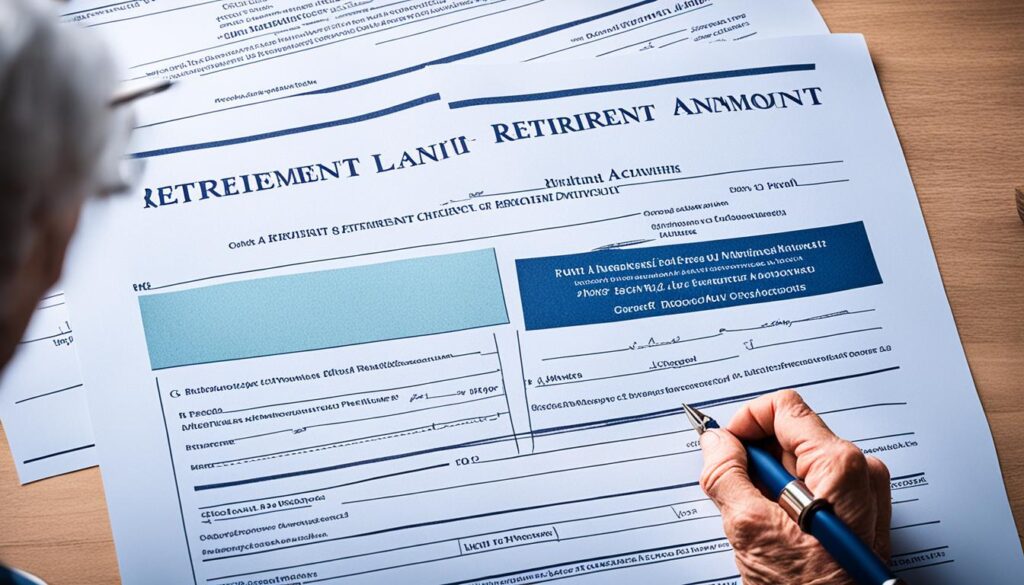
Key Points:
- A Qualified Domestic Relations Order (QDRO) is a legal document that specifies the division of retirement assets in a divorce.
- Retirement funds, such as 401(k)s and IRAs, are considered marital property and subject to division.
- A QDRO outlines the details of the division, including the percentage or amount each spouse will receive.
- Working with legal professionals experienced in family law and QDROs is crucial to ensure compliance and an equitable division of retirement assets.
Considering Social Security Benefits
Social Security benefits play a crucial role in retirement planning after divorce. Understanding the potential for ex-spousal benefits and their impact on your financial future is essential.
If you and your ex-spouse were married for at least 10 years before divorcing, you may be eligible for up to 50% of their full retirement-age benefit. This benefit does not affect the higher-earning spouse’s benefit, ensuring that both parties can secure their own retirement income.
Integrating ex-spousal benefits into your retirement plan can provide a valuable source of income. By maximizing your Social Security benefits, you can enhance your financial security and ensure a comfortable retirement.
To fully understand the eligibility requirements and the potential benefits available to you, it is advisable to consult with a certified financial planner who specializes in divorce settlements and retirement planning. They can provide expert guidance tailored to your specific situation and help you make informed decisions to secure a strong financial future.
Benefits of Ex-Spousal Social Security Benefits
Ex-spousal Social Security benefits can offer several advantages for individuals navigating retirement after divorce:
- Additional Income: By claiming ex-spousal benefits, you can supplement your retirement income and have more financial flexibility.
- No Impact on the Higher-Earner’s Benefits: The ex-spousal benefits you receive will not affect the higher-earning spouse’s benefits or reduce their potential retirement income.
- Preserves Your Own Benefits: Claiming ex-spousal benefits does not impact your own Social Security benefits. You can still receive the full amount you are entitled to based on your work history.
Understanding the nuances of Social Security benefits and their interaction with divorce settlements is crucial for securing your financial future. By considering ex-spousal benefits as part of your retirement plan, you can optimize your income and achieve a secure retirement.
“Maximizing Social Security benefits, including ex-spousal benefits, can significantly impact your retirement income. By incorporating these benefits into your financial plan, you can enhance your financial security and improve your overall retirement experience.” – Jane Smith, Certified Financial Planner
| Benefits of Ex-Spousal Social Security Benefits |
|---|
| Additional Income |
| No Impact on the Higher-Earner’s Benefits |
| Preserves Your Own Benefits |

Mitigating Risks with Professional Guidance
During divorce and retirement planning, it is crucial to mitigate risks and address complex financial issues. Seeking professional guidance from a skilled financial advisor and an experienced estate specialist can provide invaluable support in navigating these challenging situations. A financial advisor, equipped with extensive knowledge of retirement planning strategies, can offer tailored advice and help create a comprehensive plan that aligns with individual goals. This can include personalized strategies for budgeting, investing, and maximizing retirement contributions.
An estate specialist specializes in dividing inherited assets, which can be a complex process during divorce. They can provide insights and recommendations on how to fairly and equitably divide these assets, ensuring that individuals receive their rightful share. By collaborating with professionals who understand the intricacies of divorce and retirement planning, individuals can gain peace of mind knowing that their financial future is in capable hands.
“Working with a financial advisor and an estate specialist can provide the expertise needed to navigate the challenges of divorce and secure a stable financial future.”
Additionally, professional guidance can help individuals explore alternative retirement planning strategies that they may not have been aware of. A financial advisor and estate specialist can suggest creative solutions to address specific financial goals and circumstances, taking into account factors such as income, debts, assets, and tax implications. This holistic approach ensures that all aspects of retirement planning are considered, ultimately leading to a more robust and effective financial strategy.
Benefits of Professional Guidance:
- Access to expert knowledge and insights in retirement planning strategies
- Personalized advice tailored to individual goals and circumstances
- Assistance in navigating complex legal and financial processes
- Guidance in dividing inherited assets during divorce
- Exploration of alternative retirement planning strategies and solutions
- Peace of mind knowing that the financial future is in capable hands
Case Study: The Importance of Professional Guidance
In a recent case, Sarah, a divorcee navigating retirement planning after her divorce, sought the assistance of a financial advisor and an estate specialist. With their guidance, she was able to create a comprehensive retirement plan that considered her unique circumstances and financial goals. The financial advisor helped her maximize her retirement contributions, optimize her investment portfolio, and create a sustainable income stream for retirement.
The estate specialist provided invaluable advice on dividing her inherited assets, ensuring a fair distribution that aligned with legal requirements. Through their expertise and guidance, Sarah was able to navigate the complexities of divorce and secure her financial future.
By working with professionals who specialize in retirement planning and estate management, individuals can proactively address risks and make informed decisions that pave the way for a secure and comfortable retirement.

Rebuilding Retirement Savings
Divorce can have a substantial impact on retirement savings, but it is possible to rebuild funds and regain financial stability. By implementing effective retirement strategies, diligently saving, and making informed investment decisions, individuals can rebuild their retirement savings and work towards a financially secure future.
One crucial approach is to reassess one’s post-divorce finances and create a new retirement plan. This involves evaluating current income, expenses, and future financial goals. By understanding what needs to be rebuilt, individuals can develop a clear roadmap to rebuilding retirement funds.
Another important step is to take proactive measures towards saving. It’s essential to budget carefully and commit to saving a specific portion of income regularly. Creating automatic deposits into a designated retirement account can help develop consistent saving habits and protect against impulse spending.
Investment decisions
When rebuilding retirement funds, making informed investment decisions is vital. It’s crucial to assess risk tolerance, time horizon, and investment goals. Diversifying investments across various asset classes can help minimize risk and maximize potential returns. Consulting with a financial advisor who specializes in retirement strategies can provide valuable guidance in building a diversified investment portfolio.

Seeking professional guidance from a certified financial planner (CFP) can be beneficial when developing a comprehensive retirement strategy. A CFP can help analyze financial circumstances, set realistic retirement goals, and recommend suitable investment options to rebuild retirement funds.
Moreover, considering additional income streams can expedite the process of rebuilding retirement funds. Exploring part-time employment, freelancing, or starting a small business can provide extra income that can be dedicated to retirement savings.
Tracking progress
It’s essential to regularly monitor the progress of rebuilding retirement funds. This involves tracking investment performance, adjusting contributions as financial situations improve, and staying updated with changes in retirement strategies. Frequent evaluation allows individuals to make necessary adjustments and ensure they stay on track toward their retirement goals.
In conclusion, while divorce may impact retirement savings, rebuilding funds is achievable with the right strategies. By reassessing finances, saving diligently, making informed investment decisions, and seeking professional guidance, individuals can rebuild their retirement savings and work towards a financially secure future.
Embracing Financial Independence
Achieving financial independence after divorce requires careful planning and a proactive approach. Divorce can have a significant impact on one’s retirement goals, but by understanding the challenges and making strategic choices, individuals can overcome these obstacles and achieve long-term financial security.
Divorce often brings changes to both income and assets, making it crucial to reassess and adjust retirement plans accordingly. By focusing on independence and leveraging available resources, individuals can take control of their financial future.
Navigating the Impact
Divorce not only affects personal and emotional aspects but also has financial implications. Understanding the divorce impact on retirement goals is essential for making informed decisions. It may be necessary to reassess retirement savings, investment strategies, and financial objectives to align with the new circumstances.
By acknowledging the impact of divorce, individuals can prioritize their financial decisions and make necessary adjustments to achieve their revised retirement goals.
Strategic Financial Choices
Embracing financial independence involves making strategic choices that align with long-term financial goals. This may include evaluating spending habits, developing a budget, and adopting a savings plan. It is crucial to prioritize financial stability and take proactive steps towards achieving it.
By focusing on rebuilding wealth and setting realistic retirement goals, individuals can create a solid financial foundation for their post-divorce life.
Seeking Professional Guidance
When navigating the complexities of divorce and retirement planning, seeking professional guidance can be invaluable. Certified financial planners (CFPs) and divorce financial specialists can provide personalized advice, guide financial decisions, and help individuals develop effective strategies for achieving their retirement goals.
Working with professionals who understand the unique challenges of divorce and retirement can provide individuals with peace of mind and confidence in their financial decisions.
Reaching Long-Term Financial Security
Embracing financial independence after divorce is not an easy journey, but with careful planning, strategic choices, and professional guidance, individuals can overcome the challenges and achieve long-term financial security.
By prioritizing their goals, leveraging available resources, and staying committed to their financial plan, individuals can navigate the post-divorce landscape and build a prosperous future.
Remember, financial independence is within reach, even after divorce. It requires determination, resilience, and the willingness to embrace change.
Benefits Actions Opportunity to reassess financial goals Consult a certified financial planner Ability to make strategic financial choices Create a budget and savings plan Access to professional guidance Work with divorce financial specialists Potential for long-term financial security Stay committed to the financial plan

Conclusion
Navigating retirement planning after divorce can be challenging, but with careful planning and proactive steps, individuals can regain financial stability and secure their retirement. By assessing expenses, maximizing retirement contributions, understanding the division of assets, and seeking professional guidance, individuals can rebuild retirement savings and achieve their financial goals. With a comprehensive retirement plan in place, post-divorce financial independence is within reach.
When embarking on retirement planning after divorce, it is crucial to assess expenses thoroughly. By understanding one’s desired lifestyle and calculating associated costs, individuals can make informed investment decisions and set realistic goals. Downsizing to a smaller, more affordable home can reduce expenses, while increased travel may require additional funds. By carefully considering post-retirement expenses, individuals can regain stability and plan for a secure retirement.
Maximizing retirement contributions is another important aspect of rebuilding retirement savings. Taking advantage of options like 401(k) contributions with employer matching ensures that individuals make the most of free money towards retirement. Opening an IRA allows for additional savings, and catch-up contributions provide an opportunity for those aged 50 or older to contribute more. By maximizing contributions, individuals can accelerate their journey towards a financially secure retirement.
Seeking professional guidance is crucial when navigating retirement planning after divorce. Consulting with a financial advisor, particularly one with a Certified Financial Planner (CFP) designation, can provide expert guidance and personalized advice. Estate specialists can offer insights into the division of inherited assets. By working with professionals who understand the unique challenges of post-divorce planning, individuals can make well-informed decisions and secure their financial future.
FAQ
After a divorce, what is important for retirement planning?
What are some strategies for building retirement savings?
How are retirement assets divided in divorce?
How should inheritance be handled in divorce?
What should be updated in financial plans after divorce?
Should I seek professional help for retirement planning after divorce?
How can I secure my financial future after divorce?
What is important to consider when assessing expenses for retirement planning after divorce?
How can I maximize my retirement contributions?
What is the role of a Qualified Domestic Relations Order (QDRO) in divorce?
Can I receive Social Security benefits after divorce?
How can professional guidance mitigate risks during retirement planning after divorce?
How can I rebuild retirement savings after divorce?
How can I embrace financial independence after divorce?
Allison is the driving force behind our content, ensuring that every piece of information we share is both empowering and insightful. With a keen eye for detail and a deep understanding of the divorce process, Allison curates content that speaks directly to the needs of our audience. Her expertise ensures that How Get Divorce remains a trusted and authoritative source of guidance for those navigating the difficult waters of divorce.
Financial Planning and Budgeting
Divorce Financial Statement Guide: How to Fill Out
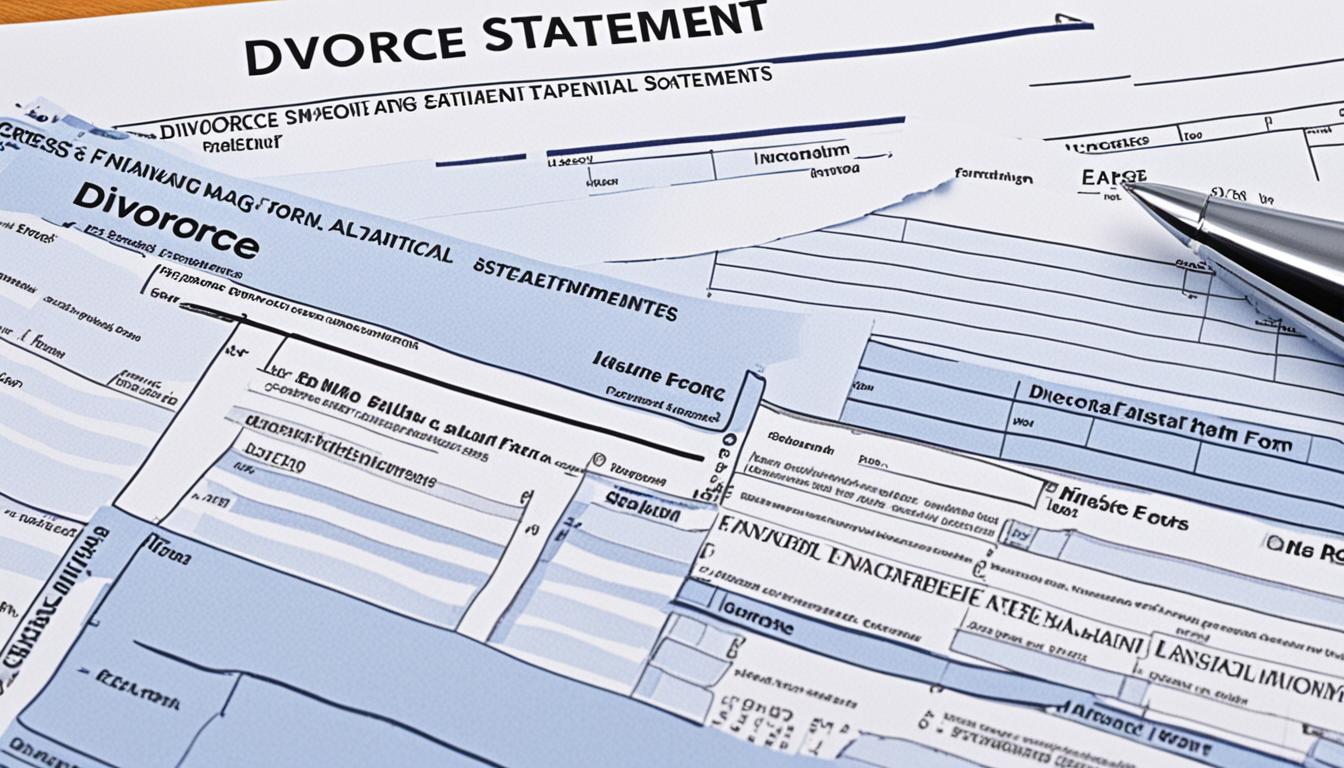
Were you aware that precisely completing a financial statement is essential for achieving a fair and equitable settlement in a divorce? Errors or inaccuracies could lead to severe repercussions, such as penalties and harm to your reputation.
After filing for divorce, one of the important tasks is filling out a financial statement. This document provides the court with an overview of your income, expenses, and assets. It is crucial to be honest and thorough while filling out the financial statement, as any omissions or misrepresentations can have serious consequences, including penalties and damage to your credibility. The form may vary depending on your location, but the purpose remains the same – to give the court an accurate snapshot of your financial situation. It is essential to gather supporting documentation, such as tax returns, pay stubs, financial statements, and bills, to verify the information you provide.
Key Takeaways:
- Accurately filling out a financial statement is crucial for a fair and equitable divorce settlement.
- Mistakes or misrepresentations in the financial statement can lead to penalties and damage to your credibility.
- Gather supporting documentation to verify the information provided in the financial statement.
- Be honest and thorough while filling out the financial statement to provide an accurate snapshot of your financial situation.
- The financial statement helps the court make decisions regarding support, property division, and attorney fees.
Why is the Financial Statement Important in Divorce?
The financial statement plays a crucial role in the divorce process as it is used by the court to make decisions regarding spousal support, child support, attorney fees, and property division. It provides a comprehensive overview of your financial situation and helps the judge assess your ability to pay or receive support.
Considered a sworn statement under penalty of perjury, any deliberate misrepresentations can lead to penalties or even legal consequences. Accurate and detailed information in the financial statement is vital for a fair and equitable divorce settlement.
By providing a clear picture of your income, expenses, and assets, the financial statement assists the court in determining appropriate support payments, dividing marital property, and ensuring that the financial needs of both parties and any children involved are met.
The financial statement is like a financial snapshot of your life during the divorce process. It is an essential document that provides transparency and allows the court to make informed decisions based on your financial situation.” – Family Law Attorney, Jane Wilson
With the financial statement serving as a key factor in divorce proceedings, it is crucial to be diligent and accurate while filling it out. Providing misleading or incomplete information can lead to unfair outcomes and damage your credibility in the eyes of the court.
Next, we will explore the specific documentation required for the financial statement to ensure a comprehensive and accurate representation of your financial situation.
Key Points
| Financial Statement in Divorce | Importance |
|---|---|
| Used by the court to make decisions | To assess ability to pay/receive support |
| Sworn statement under penalty of perjury | Deliberate misrepresentation can lead to penalties |
| Provides a comprehensive financial snapshot | Aids in fair and equitable settlement |
| Key factor in determining support payments and property division | Ensures financial needs are met |
Now that you understand the importance of the Financial Statement in Divorce, let’s delve into the specific documentation required to support your financial disclosures.

What Documentation is Required for the Financial Statement?
To accurately fill out a financial statement, you will need to gather various documents that support your income, expenses, and assets. Providing accurate and up-to-date documentation is crucial to back up the information you include in your financial statement.
Some common documents required for the financial statement include:
- Tax returns for the previous years: These help provide a comprehensive view of your income and deductions.
- Pay stubs: These documents show your regular income and any additional earnings.
- Financial statements from bank accounts, credit cards, and retirement accounts: These statements offer an overview of your assets and liabilities.
- Real estate information: Documenting property ownership and any mortgages or loans connected to it is essential.
- Loan details: If you have any outstanding loans, such as a car loan or student loan, gather relevant information about those debts.
- Bills: Collect bills for utilities, insurance, childcare, and other regular expenses to accurately represent your monthly financial obligations.
Gathering these documents ensures that you have the necessary evidence to support the figures you provide in your financial statement.
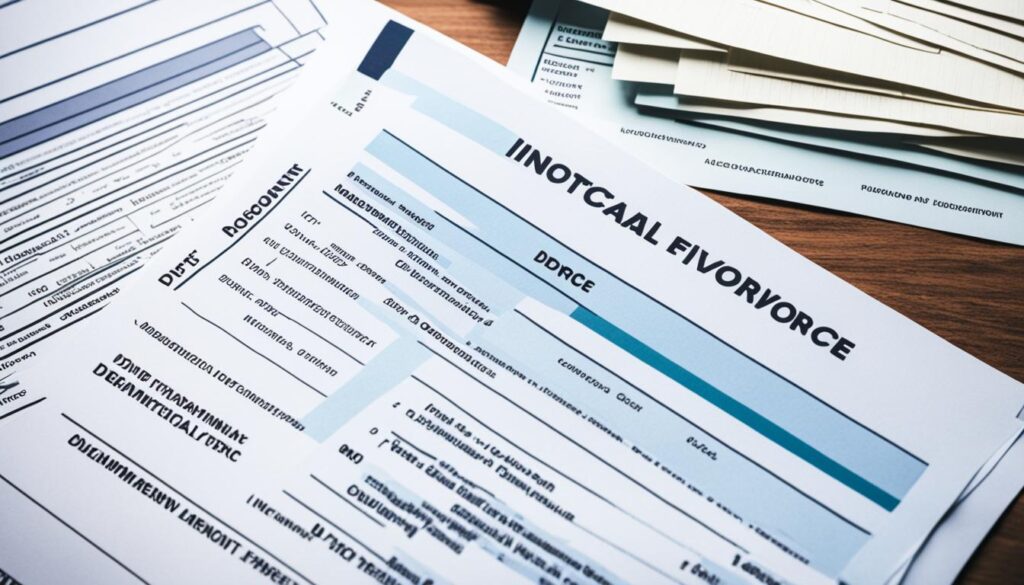
Having all the necessary documentation ready will help you accurately complete your financial statement and present an accurate representation of your financial situation to the court.
Tips for Filling Out the Financial Statement
Filling out the financial statement can be a complex task, but following some tips can make the process smoother.
- Calculate your income carefully: Include all sources of income and average variable income over a specific period. This ensures that you provide an accurate representation of your financial situation.
- Thoroughly document your expenses: Include all necessary categories and be detailed in recording your expenses. Additionally, utilize averages for expenses that are incurred irregularly to provide a comprehensive overview.
- Gather supporting documentation: It is crucial to gather all appropriate documentation to support the information you provide in your financial statement. This includes tax returns, pay stubs, financial statements, and bills. Having this documentation ready will help verify the accuracy of the information you provide.
- Avoid double-dipping: Ensure that you list your expenses only once. Double-dipping can lead to inaccuracies and misrepresentations, which may have consequences during the divorce proceedings.
- Designate separate property accurately: If you have separate property that is not subject to division, make sure to accurately designate it in your financial statement. Provide all necessary attachments or documentation to support the separate property claim.
If you have any questions or need assistance in completing the financial statement accurately, it is advisable to seek guidance from your attorney. They can provide you with the necessary expertise and ensure that you navigate the process effectively.

Image: Illustration of a person organizing financial documents for a financial statement.
Understanding the Categories in the Financial Statement
The financial statement is a comprehensive document that provides an overview of your financial situation during divorce proceedings. It is divided into various categories, each representing different aspects of your financial life. Understanding these categories and accurately filling them out is essential to present a complete picture to the court.
Here are the key categories typically included in a financial statement:
1. Personal Information
This section includes basic personal details such as your name, address, contact information, and social security number.
2. Gross Weekly Income from All Sources
Here, you need to list all sources of income including wages, self-employment income, rental income, dividends, and any other form of regular income.
3. Itemized Deductions from Gross Income
In this category, you should list all allowable deductions such as federal and state taxes, healthcare costs, retirement contributions, and any other deductions that reduce your gross income.
4. Adjusted Net Weekly Income
This section calculates your adjusted net weekly income by subtracting the itemized deductions from your gross weekly income. It represents your disposable income after deducting allowable expenses.
5. Other Deductions from Salary
If you have any additional deductions such as union dues, health insurance premiums, or other mandated payments, this is where you would list them.
6. Net Weekly Income
This category represents your net weekly income after deducting both itemized deductions from gross income and other deductions from salary.
7. Gross Yearly Income from the Prior Year
Here, you need to provide your total gross income from the previous year, including any bonuses, commissions, or other forms of income received during that period.
8. Weekly Expenses
This section requires you to list your weekly expenses, including housing costs, utilities, transportation expenses, healthcare costs, childcare expenses, and any other regular living expenses.
9. Assets
Include all your assets in this category, such as real estate, vehicles, investments, bank accounts, retirement accounts, and any other valuable possessions.
10. Liabilities
Here, you should list all your liabilities, including mortgages, loans, credit card debts, and any other outstanding debts or obligations you have.
By accurately providing the necessary information under each category, you can ensure that the court has a clear understanding of your financial situation, thereby facilitating fair and informed decisions during the divorce proceedings.
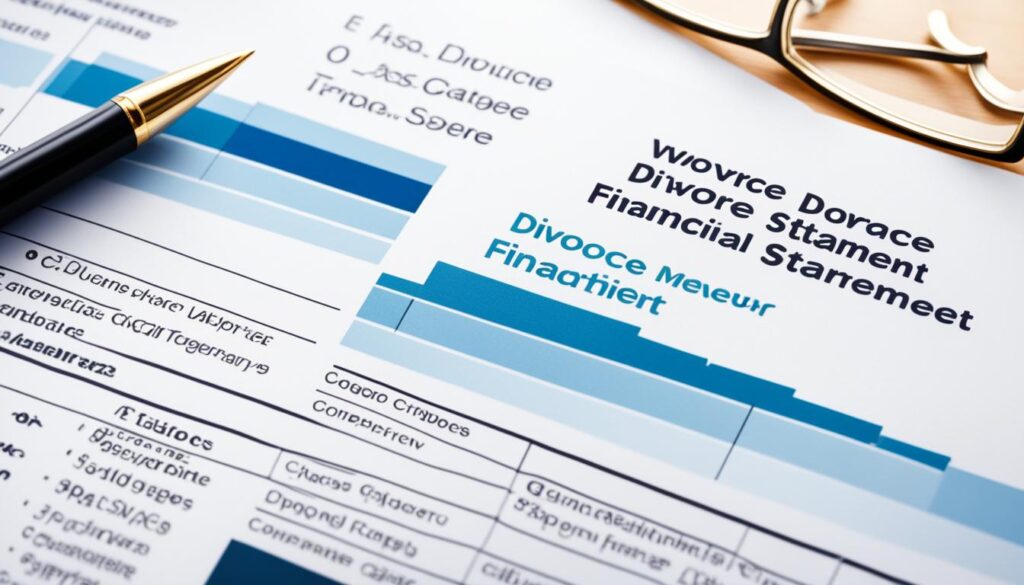
How to Calculate Income and Expenses in the Financial Statement
Calculating income in the financial statement involves accurately reporting your income from various sources. This includes base pay, self-employment income, social security, public assistance, rental income, and other sources. It may require averaging variable income over a specific period to provide a more accurate representation of your earnings. By carefully considering all sources of income, you can ensure that your financial statement reflects your true earning capacity.
On the other hand, calculating expenses in the financial statement requires a thorough assessment of various categories. These categories typically include housing, utilities, transportation, childcare, healthcare, and others. It is important to provide accurate and detailed information in the expense section to present a comprehensive overview of your financial obligations. By diligently accounting for all relevant expenses, you can paint a clearer picture of your financial situation.
When calculating both income and expenses in the financial statement, it is crucial to be meticulous in your approach. Double-check your calculations and ensure that you have accurately accounted for all relevant figures. By taking the time to accurately calculate your income and expenses, you can present a thorough and reliable financial statement that will aid in the divorce process.
Example:
| Income Sources | Amount |
|---|---|
| Base Pay | $4,500 |
| Self-Employment Income | $2,000 |
| Social Security | $1,200 |
| Public Assistance | $500 |
| Rental Income | $1,000 |
| Other Sources | $500 |
| Expense Categories | Amount |
|---|---|
| Housing | $2,500 |
| Utilities | $500 |
| Transportation | $300 |
| Childcare | $1,000 |
| Healthcare | $400 |
| Other Expenses | $600 |

Common Mistakes to Avoid in Filling Out the Financial Statement
Filling out the financial statement accurately is crucial to ensure a fair and equitable divorce settlement. To avoid mistakes, it is important to be thorough, honest, and organized. Common mistakes to avoid include:
- Not including all income sources: It is essential to report all sources of income, including salary, self-employment income, rental income, and any other financial resources. Failure to include any income sources can lead to an inaccurate representation of your financial situation.
- Not accurately documenting expenses: Be meticulous in documenting your expenses and include all necessary categories. Ensure that you account for regular and irregular expenses to provide an accurate overview of your financial obligations.
- Double-dipping expenses: Avoid listing the same expense multiple times in different categories. It is important to report each expense only once to avoid inflating your financial obligations.
- Not providing supporting documentation: Failing to include the necessary supporting documentation can raise doubts about the accuracy of your financial statement. Gather and attach all relevant documents, such as bank statements, tax returns, and bills, to back up the information provided.
- Incomplete or incorrect information: Take the time to carefully review and fill out each section of the financial statement. Incomplete or incorrect information can lead to misunderstandings, delays, or even legal consequences.
- Failing to disclose separate property: It is crucial to disclose all separate property, such as assets acquired before the marriage or through inheritance. Failure to do so can impact the division of assets during the divorce proceedings.
Being vigilant and paying attention to detail can help you avoid these common mistakes when filling out the financial statement. Take the time to review the form, gather all necessary documentation, and consult with your attorney if you have any questions or concerns.

Importance of Accuracy in the Financial Statement
Accuracy is of utmost importance when filling out the financial statement. The financial statement serves as a roadmap for the court to allocate support payments, divide assets and debts, and make decisions related to the divorce settlement. Any inaccuracies or misrepresentations can lead to unfair outcomes and damage your credibility in the eyes of the court. It is essential to provide honest, detailed, and verifiable information in the financial statement to ensure a fair and just resolution to your divorce case.
Why Accuracy Matters
An accurate financial statement provides a clear and comprehensive picture of your financial situation, enabling the court to make informed decisions. By presenting accurate income, expenses, assets, and liabilities, you help ensure a fair distribution of marital property, appropriate support payments, and a reasonable resolution to your divorce proceedings.
The Consequences of Inaccuracy
Any inaccuracies or misrepresentations in the financial statement can have serious consequences. They can lead to an unfair division of assets or support payments, causing financial hardships or discrepancies. Moreover, if the court discovers deliberate misrepresentations, it can affect your credibility and trustworthiness, potentially jeopardizing your case.
“An accurate and detailed financial statement is the cornerstone of a fair and equitable divorce settlement.
Tips for Ensuring Accuracy
To ensure accuracy in your financial statement, follow these tips:
- Take your time: Take the necessary time to gather all the required documents and information before filling out the financial statement.
- Be meticulous: Double-check all the numbers, figures, and supporting documentation to ensure accuracy.
- Provide complete information: Include all relevant details about your income, expenses, assets, and liabilities. Leaving out information can lead to misconceptions or misunderstandings during the divorce proceedings.
- Seek professional assistance: If you’re unsure about any aspect of the financial statement or need guidance, consult with an experienced family law attorney who can provide expert advice and ensure accuracy.

| Importance of Accuracy in the Financial Statement |
|---|
| Avoids unfair outcomes in the division of assets and support payments. |
| Preserves your credibility and trustworthiness in the eyes of the court. |
| Leads to a fair and just resolution of your divorce case. |
Seek Professional Guidance for Filling Out the Financial Statement
Filling out the financial statement accurately and comprehensively can be a challenging task. That’s why it’s highly recommended to seek professional help and guidance to ensure that you provide accurate and detailed information. An experienced family law attorney can offer valuable assistance throughout the process, ensuring that everything is filled out correctly and in accordance with legal requirements.
An attorney can provide expert guidance to help you gather the necessary documents for your financial statement. They can advise you on which specific documents are required, such as tax returns, pay stubs, bank statements, and other financial records. This ensures that you have all the necessary supporting documentation to back up the information you provide.
Additionally, an attorney can assist you in accurately calculating your income and expenses. They understand the complexities involved in assessing various income sources and accounting for different types of expenses. With their professional knowledge, they can help you minimize errors and ensure that your financial statement presents an accurate financial picture.
Understanding the categories and sections of the financial statement can be daunting. However, an experienced attorney can provide you with valuable insights and explanations, helping you navigate through the different sections of the form. They can guide you in accurately filling out each category, ensuring that you provide the necessary details and information as required by the court.
Advantages of Seeking Professional Help
When you seek attorney assistance for your financial statement, you benefit from their expertise and experience in handling divorce cases. They have a deep understanding of the legal requirements and processes involved, ensuring that your financial statement is filled out correctly and in compliance with the law.
By consulting with an attorney, you gain peace of mind knowing that you have professional support throughout the process. They can answer any questions you may have, clarify any doubts, and provide you with the guidance you need to navigate the complexities of filling out the financial statement.
Moreover, by having an attorney assist you, you increase the chances of a successful outcome in your divorce case. They can help you present a comprehensive, accurate, and persuasive financial statement that supports your interests and protects your rights. This can lead to a more favorable divorce settlement and ensure that your financial situation is appropriately considered by the court.
Overall, seeking professional help with your financial statement is a wise decision. It saves you time, reduces stress, and enhances the accuracy and credibility of your financial disclosure. Investing in professional guidance ensures that you provide a comprehensive and accurate overview of your financial situation, increasing the likelihood of a fair and equitable divorce settlement.

By seeking assistance from an experienced family law attorney, you can navigate the complexities of the financial statement with confidence, knowing that you have the support and expertise needed to present your financial information accurately and effectively.
Conclusion
Filling out the financial statement is a critical step in the divorce process. It requires careful organization, accurate calculation of income and expenses, and gathering supporting documentation. The importance of accuracy and honesty cannot be overstated, as it ensures a fair and equitable divorce settlement.
Seeking professional guidance from an experienced family law attorney can greatly assist in filling out the financial statement accurately and comprehensively. An attorney can provide valuable advice on which documents to gather, help in calculating income and expenses, and ensure a thorough understanding of the different categories and sections of the financial statement.
By following the tips and guidelines provided in this guide, you can navigate the complexities of filling out the financial statement with confidence. Remember to be diligent in gathering all the necessary documentation and providing accurate and detailed information. This will help you present an accurate financial picture to the court, increasing the chances of a successful outcome in your divorce case.
FAQ
How do I fill out a financial statement for divorce?
To fill out a financial statement for divorce, you need to be thorough, honest, and organized. Gather all necessary documentation to support your income, expenses, and assets. Calculate your income carefully, including all sources and averaging variable income. Document your expenses accurately, including all necessary categories and utilizing averages for irregular expenses. Seek guidance from your attorney if needed.
Why is the financial statement important in a divorce?
The financial statement plays a crucial role in the divorce process as it provides the court with an accurate snapshot of your financial situation. It is used by the court to make decisions regarding spousal and child support, attorney fees, and property division. It is considered a sworn statement under penalty of perjury, and any deliberate misrepresentations can lead to penalties or legal consequences.
What documentation is required for the financial statement?
To fill out the financial statement accurately, you need to gather various documents that support your income, expenses, and assets. Some common documents include tax returns, pay stubs, financial statements from bank accounts, credit cards, and retirement accounts, real estate information, loan details, and bills.
What are some tips for filling out the financial statement?
When filling out the financial statement, calculate your income carefully, be thorough in documenting your expenses, gather all appropriate documentation, avoid double-dipping expenses, designate separate property accurately, and seek guidance from your attorney if needed.
What are the categories in the financial statement?
The financial statement is typically divided into categories such as personal information, income, deductions, net income, yearly income, expenses, assets, and liabilities. Each category represents a different aspect of your financial situation.
How do I calculate income and expenses in the financial statement?
Calculating income involves accurately reporting your income from various sources, including base pay, self-employment income, social security, rental income, and more. Calculating expenses requires careful consideration of various categories, such as housing, utilities, transportation, childcare, healthcare, and others.
What are common mistakes to avoid in filling out the financial statement?
Common mistakes to avoid include not including all income sources, not accurately documenting expenses, double-dipping expenses, not providing supporting documentation, incomplete or incorrect information, and failing to disclose separate property. Being thorough and paying attention to detail can help avoid these mistakes.
Why is accuracy important in the financial statement?
Accuracy is essential in the financial statement to ensure a fair and equitable divorce settlement. Any inaccuracies or misrepresentations can lead to unfair outcomes and damage your credibility in the eyes of the court. Providing honest, detailed, and verifiable information is crucial.
Should I seek professional guidance for filling out the financial statement?
Seeking professional guidance from an experienced family law attorney can greatly simplify the process and ensure that you provide accurate and detailed information. An attorney can assist in gathering the necessary documents, calculating income and expenses, understanding the categories, and ensuring everything is filled out correctly.
What is the conclusion on filling out the financial statement?
Filling out the financial statement for divorce is a crucial step that requires accuracy, honesty, and organization. It is important to gather all necessary documentation, calculate income and expenses carefully, and avoid common mistakes. Seeking professional guidance can greatly assist in filling out the financial statement accurately and comprehensively.
Understanding the financial implications of divorce can be daunting. Christopher, our Financial Strategist, makes it accessible and manageable. He offers strategic insights into financial planning, asset division, and budgeting during and after divorce. Christopher’s guidance is invaluable for anyone looking to navigate the financial challenges of divorce with confidence and clarity.
Financial Planning and Budgeting
Financial Divorce Mediation: A Comprehensive Guide
Hurdles in financial divorce mediation present unique challenges, but the key to overcoming them lies in strategic planning and effective communication.

Picture Sarah and John, a couple entangled in the complicated financial aspects of their divorce. Financial Divorce Mediation provides a systematic way to tackle their issues and achieve an equitable agreement.
As they sit down with a mediator, the process begins to unfold, shedding light on hidden financial pitfalls and paving the way for a smoother separation.
But what challenges might arise, and how can they overcome them to secure their financial future post-divorce? Let's explore the intricacies of financial divorce mediation and discover the tools needed to navigate this crucial phase of life.
Key Takeaways
- Financial divorce mediation saves costs and achieves high settlement rates.
- Qualified mediators bring expertise in financial disputes and asset division.
- Address key financial issues like spousal support and tax implications.
- Collaborative planning ensures fair debt allocation and financial independence.
Benefits of Financial Divorce Mediation
Financial divorce mediation offers a cost-effective alternative to traditional legal proceedings, costing 20-50% less while achieving successful settlements in nearly 90% of cases. This method not only saves money but also leads to highly satisfactory outcomes, with over two-thirds of couples expressing contentment with the results.
The benefits extend beyond mere financial savings; financial divorce mediation empowers individuals to make informed choices, allowing them to actively participate in crafting equitable agreements that suit their unique circumstances. By engaging in this process, parties feel more in control of their futures and can collaboratively work towards successful outcomes that align with their specific needs and preferences.
This approach fosters a sense of empowerment, as individuals are actively involved in the decision-making process, ensuring that the final agreements are reflective of their shared goals and priorities. Ultimately, the benefits of financial divorce mediation lie in the ability to navigate divorce proceedings with a focus on fairness, satisfaction, and informed decision-making.
Choosing a Qualified Mediator

When selecting a qualified mediator for your financial divorce proceedings, it's crucial to prioritize individuals with specialized training and extensive experience in the field. Here are four key factors to consider when choosing a mediator:
- Credentials: Look for mediators with specific training and certifications in financial divorce mediation to ensure they have the necessary expertise.
- Experience: Prioritize mediators with a proven track record of successfully mediating financial disputes in divorce cases.
- Communication Skills and Conflict Resolution: A qualified mediator should possess excellent communication skills and the ability to resolve conflicts effectively.
- Neutrality and Understanding of Financial Matters: Ensure the mediator remains neutral throughout the process and has a deep understanding of financial matters, including asset division and financial planning.
Key Financial Issues Addressed
Addressing key financial issues in divorce mediation involves analyzing and resolving critical matters such as asset division, spousal support, debt allocation, tax implications, and post-divorce financial planning. During mediation, we delve into the specifics of asset division, which may include real estate properties, diverse investments, and retirement accounts. Determining spousal support or alimony payments is a key focus, taking into account factors like income, earning potential, and the financial needs of each party. Additionally, debt allocation plays a crucial role in the process, encompassing considerations related to credit card debt, mortgages, and loans. Tax implications are meticulously examined to ensure accurate filing status changes and tax liabilities are addressed. Moreover, crafting a comprehensive financial plan for post-divorce life, which includes budgeting, savings strategies, and achieving financial independence, is a significant aspect of financial divorce mediation.
| Financial Aspect | Examples |
|---|---|
| Asset Division | Real Estate |
| Spousal Support | Alimony Payments |
| Debt Allocation | Credit Card Debt |
| Tax Implications | Filing Status Changes |
| Financial Plan | Achieving Independence |
Financial Planning and Debt Allocation

In navigating financial planning and debt allocation during divorce mediation, couples work to create a comprehensive strategy for dividing assets and liabilities fairly and equitably.
- Comprehensive Plan: Couples engage in developing a detailed financial roadmap encompassing asset division and debt allocation.
- Fair and Equitable Division: Mediators assist in determining a just distribution of shared debts and assets to ensure fairness.
- Detailed Financial Documentation: Accurate assessment and allocation of debts rely on thorough financial records and documentation.
- Collaborative Approach: Couples adopt a collaborative mindset to address financial matters together, enhancing the likelihood of reaching mutually satisfactory resolutions.
Challenges in Financial Mediation
What challenges do couples typically encounter in financial mediation processes as they navigate the complexities of asset division and debt allocation? Financial mediation often presents couples with a range of challenges that can impede progress towards reaching mutually agreeable solutions. Differing financial priorities and goals between spouses can lead to conflicts during the mediation process. Effective communication and transparency are essential in overcoming these challenges and ensuring both parties' voices are heard. Achieving equitable distribution of assets and liabilities based on individual circumstances can also be a point of contention. Professional mediators play a crucial role in guiding couples through these complexities and facilitating discussions to reach mutable agreements. The table below highlights some common challenges faced in financial mediation and strategies to address them:
| Challenges | Strategies |
|---|---|
| Differing priorities | Open dialogue |
| Communication breakdown | Mediator facilitation |
| Lack of transparency | Full financial disclosure |
| Disagreements on division | Compromise and flexibility |
Frequently Asked Questions
What Not to Say in Divorce Mediation?
In divorce mediation, we avoid escalating tensions with inflammatory statements, refrain from unkeepable promises, and focus on productive dialogue. Careful consideration of offers and concessions helps us achieve mutually beneficial agreements through open communication and understanding.
What Is the Success Rate of Mediation?
We've got an impressive statistic for you: the success rate of mediation hovers around 90%! It's a cost-effective, collaborative process that empowers parties to find tailored solutions. Mediation fosters open communication and preserves relationships.
Is Divorce Mediation Stressful?
Divorce mediation is often less stressful as it encourages open dialogue and mutual decision-making. Parties can address emotional aspects in a supportive environment, reducing tension. Ultimately, mediation aims to minimize stress by fostering collaboration.
How Do I Prepare for Divorce Mediation in Texas?
We gather financial documents, understand Texas laws, and address post-divorce financial needs. We discuss debts, assets, and consult advisors for insights. Preparation is vital for productive divorce mediation in Texas. Be proactive and informed.
Conclusion
In conclusion, financial divorce mediation offers couples a cost-effective and efficient way to navigate the complexities of separating assets and debts. By choosing a qualified mediator and addressing key financial issues collaboratively, couples can reach a fair and equitable agreement. Despite the challenges that may arise during the process, the benefits of mediation far outweigh the alternative of lengthy and costly court battles.
So, ironically, divorce mediation can actually bring couples closer together in their journey towards separation.
Understanding the financial implications of divorce can be daunting. Christopher, our Financial Strategist, makes it accessible and manageable. He offers strategic insights into financial planning, asset division, and budgeting during and after divorce. Christopher’s guidance is invaluable for anyone looking to navigate the financial challenges of divorce with confidence and clarity.
-

 Life After Divorce2 months ago
Life After Divorce2 months agoTD Jakes: Life After Divorce – A Journey of Healing
-

 Navigating the Divorce Process2 months ago
Navigating the Divorce Process2 months agoNavigating the Complexity: Divorce Document Preparation Services Explained
-

 Financial Aspects2 months ago
Financial Aspects2 months agoFinancial Advisor's Guide to Navigating Divorce Finances
-

 Supporting Children Through Divorce2 months ago
Supporting Children Through Divorce2 months agoPositive Effects of Divorce on Children: A Guide to Understanding
-

 Navigating the Divorce Process2 months ago
Navigating the Divorce Process2 months agoDivorce Lawyers New Orleans: Your Ultimate Guide to Legal Separation and Family Law
-

 Navigating the Divorce Process2 months ago
Navigating the Divorce Process2 months agoNavigating Divorce with a Muslim Divorce Lawyer
-

 Navigating the Divorce Process2 months ago
Navigating the Divorce Process2 months agoUnderstanding Dominican Republic Divorce Law
-

 Directory2 months ago
Directory2 months agoCompassionate Vista Divorce Attorney | Family Law Help









































